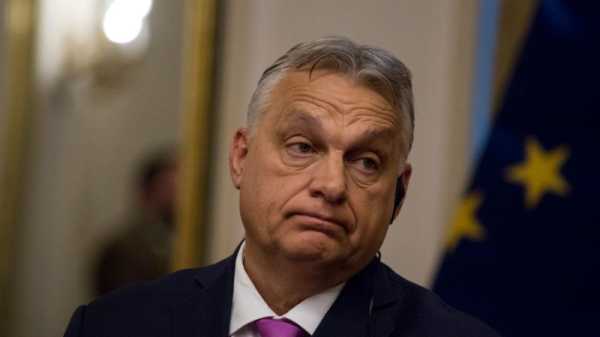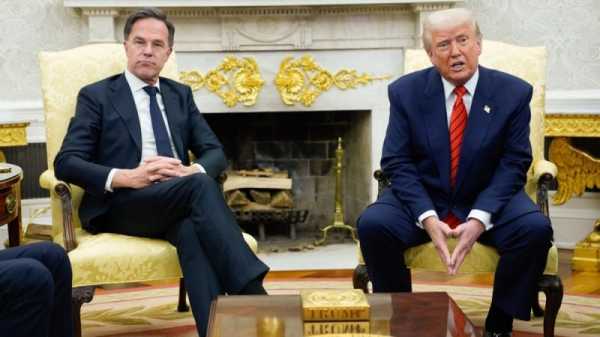
Russian police prevent a Navalny rally in 2021. No decent government would need a UN committee to tell it to allow a grieving mother to bury her son (Photo: VT)
Russian authorities announced the death of Alexei Navalny on 16 February. The following day, Navalny’s mother Lyudmila Navalnaya arrived at the remote, Arctic penal colony where her son had been imprisoned. A macabre runaround ensued.
First, authorities refused to let Navalnaya see her son’s body. Next, they refused to hand over Navalny’s body unless his mother agreed to a “secret” funeral.
Last Thursday, Navalnaya said that an investigator had told her: “Time is not on your side, corpses decompose”.
On Saturday, Navalny’s widow Yulia Navalnaya accused Russian dictator Vladimir Putin of “satanism” for holding Navalny’s body hostage while posing as a devout Christian (character references from Patriarch Kirill notwithstanding).
This inhumanity triggered widespread outrage.
An open letter to Russian authorities from Russian Orthodox priests and laypeople garnered over 4,000 signatures. The letter admonishes: “Even Pontius Pilate, who decided to execute Christ out of fear of being disloyal to the emperor … did not prevent the delivery of the body of the Saviour and his burial. Do not be crueler than Pilate.”
Russian authorities released Navalny’s body to his mother nine days after his death.
The ordeal inflicted on Lyudmila Navalnaya amounted to cruel, inhuman or degrading treatment, in breach of Russia’s obligations under international law. It also spoke volumes about a regime that flouts even the most minimal requirements of human decency.
The International Covenant on Civil and Political Rights provides at Article 7 that ‘[n]o one shall be subjected to torture or to cruel, inhuman or degrading treatment or punishment’. Russia is a party to the Covenant.
The UN Human Rights Committee, which monitors implementation of the Covenant, has stated that “[r]elatives of individuals deprived of their life by the state must be able to receive the remains, if they so wish”. The committee has repeatedly found refusal of authorities to hand over the body of a deceased prisoner to violate Article 7 of the Covenant.
Just like Belarus
In 2014, Belarus executed Pavel Selyun, who had been sentenced to death following a conviction the Human Rights Committee found had been “extracted by torture”.
The state refused to hand over his body to his mother, Tamara Selyun. In this case, the Human Rights Committee found that “the complete secrecy surrounding the date of the execution and the location of his grave, as well as the refusal to hand over the body for burial have the effect of intimidating or punishing the family by intentionally leaving them in a state of uncertainty and mental distress”. It concluded that “these elements amount to inhuman treatment of [Tamara Selyun], in violation of article 7 of the Covenant”. Belarus was under an obligation to “hand over her son’s remains”.
In another case, also concerning a prisoner executed in Belarus, the deceased man’s family submitted that “they are Orthodox Christians and wish to bury Kovalev in accordance with their religious beliefs and rituals”. The committee cited Belarus’ “refusal to hand over the body for burial in accordance with the religious beliefs and practices” of the family as a factor in its conclusion that Belarus had violated the Covenant.
As these precedents from ‘fraternal’ Belarus indicate, Russia’s obligation to hand over the body of Navalny to his mother without conditions or delay could not have been clearer.
Sign up for EUobserver’s daily newsletter
All the stories we publish, sent at 7.30 AM.
By signing up, you agree to our Terms of Use and Privacy Policy.
Of course, no decent government would need a UN committee to tell it to allow a grieving mother to bury her son.
An early masterpiece of European culture, the Antigone by the Athenian playwright Sophocles, turns on a tyrant’s refusal to allow an enemy burial. The dead man’s sister, Antigone, administers the burial rites anyway and is sentenced to death. Late in the play, the blind seer Tiresias appears to urge the tyrant to reconsider: “Concede the claim of the dead. Do not kick at the fallen. What prowess is it to kill the dead all over again?” The tyrant rebuffs the prophet and presses on towards catastrophe.
As Navalny’s family and friends prepare his funeral on Friday, EU and likeminded authorities should monitor the Russian state — and hold it accountable — for further breaches of human rights.
Acts such as failure to properly investigate a death in custody and failure to correct a death certificate falsely declaring “natural causes” would be further breaches of the ban on inhuman treatment.
In addition, the Convention against Torture and Other Cruel, Inhuman or Degrading Treatment or Punishment, to which Russia is a party, requires its parties to ensure that individuals subjected to inhuman treatment have the right to complain and to be protected from ‘all ill-treatment or intimidation’. Under a government that took its legal commitments seriously, these rules would protect Lyudmila Navalnaya.
The obligations of the Russian Federation are recalled here not out of any expectation that they will be honoured, but rather as a measure of how low its regime has sunk beneath the minimum expectations of humanity.
Source: euobserver.com



